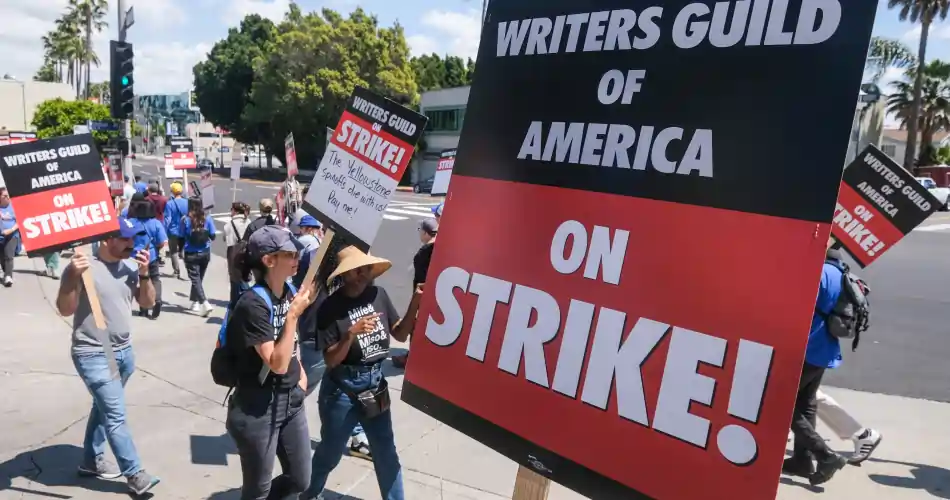Although the terms of the agreement have not been fully disclosed, it is believed that this negotiation could signal the end of a strike that has been going on for more than four months.
After four and a half months on strike, the Writers Guild of America recently announced that a “tentative agreement” could be reached with the Alliance of Motion Picture and Television Producers after several weeks of negotiations that could lead to the end of the strike.
Since May 2, nearly 11,000 film and television writers in the United States have been on strike for fairer wages and working conditions after the contract between the guild and the industry was terminated.
Although the Alliance of Motion Picture and Television Producers (AMPTP), which covers some companies such as NBC Universal, Paramount, Sony, Netflix, Amazon, Apple, Discovery-Warner and Disney have been in negotiations with the union, it had not been possible to reach an outcome.
However, this Sunday the terms of the latest agreement became partially known and according to the WGA negotiating committee “we can say, with great pride, that this agreement is exceptional, with significant benefits and protections for writers in all sectors of the membership,” they stated in an email to their members.
The union also noted that “what remains now is for our staff to make sure that everything we have agreed to is codified in the final contract language. And while we are eager to share the details of what has been accomplished with you, we can’t do so until the last ‘i’ is dotted,” it said.
Actors’ strike
In the second week of July, at least 160,000 Hollywood actors joined the strike to also demand wage increases and better working conditions, due to the breakdown of negotiations between the Screen Actors Guild of America, SAG-AFTRA, and the AMPTP.
The decisions of both unions have weighed on the development of some productions of programs, films, events and presentations.
In May, the writers’ union had announced that “although we negotiated with the intention of making a fair deal, and although their strike vote gave us the leverage to make some gains, the studios’ responses to our proposals have been totally insufficient, given the existential crisis facing writers,” they said.
The cost of a stoppage
This is not the first time that a strike of this kind has taken place; although it was thought that it could extend into next year, it seems that the mood is returning to normal in these latest agreements.
However, analysts estimated that the development of such a stoppage would cost billions of dollars not only to the entertainment industry, but also to the country’s economy. For example, Warner Bros. Discovery executives estimated costs between $300 million and $500 million.

